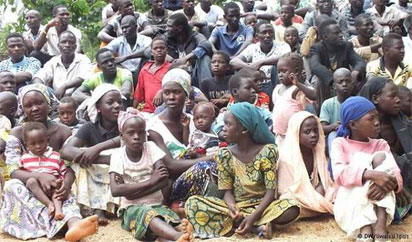About 223,910 Internally Displaced Persons (IDPs) are facing water related challenges in various host communities in Adamawa State, Daily Trust learnt.
Regional Researcher-Climate and Governance, International Water Management Institute (IWMI), Dr Okem Andrew Emmanuel, disclosed this during a stakeholders’ engagement meeting to address water capacity challenges faced by the IDPs in the state.
He said the stakeholders were drawn from humanitarian organisations, community leaders and university dons, to develop a road map in order to comprehend water-related issues in the context of fragility, conflict and displacement.
He added that the programme supported by the Norwegian Agency for Development Cooperation (NORAD), aimed to formulate strategies for addressing water related challenges to foster an integrated approach that combines humanitarian, peace and development initiatives, “to ensure that sustainable solutions are implemented to address the pressing needs of the affected population.”
- We Won’t Allow MDAs Disrupt January-December Budget Cycle, Reps Warn
- Nigeria’s Presidential System Defective, Restructuring Critical Before 2027 – Jega
Presenting a study on “Anticipatory Action in Humanitarian Response: A Focus on IDPs and Host Communities Dynamics in Adamawa State,” Dr Robert Onyeneke of Alex Ekwueme Federal University, Ndufu-Alike and Dr Ahmadu Abubakar Tafida of Modibbo Adama University, Yola, emphasised on the need for targeted interventions that would address the immediate and long-term needs of the IDPs and host communities.
“The study approach involves a combination of qualitative and quantitative methods to co-create interventions and anticipatory actions that enhance livelihoods and support resilience and peace-building.
“The provision of basic necessities, including safe and accessible nutrition services and disaster management strategies, is crucial to ensure the health and wellbeing of the IDPs and their host communities,” the authors said.
They also emphasised the importance of taking a proactive approach to address the water crisis and called for a continuous effort to improve the situation of the IDPs in Adamawa State.
The university dons added that the situation of the 223,910 IDPs in the state required urgent attention and action to ensure access to clean water and other basic amenities for their health and wellbeing.

 Join Daily Trust WhatsApp Community For Quick Access To News and Happenings Around You.
Join Daily Trust WhatsApp Community For Quick Access To News and Happenings Around You.


